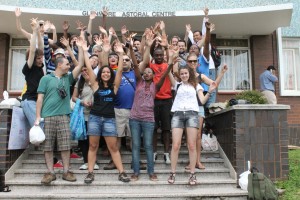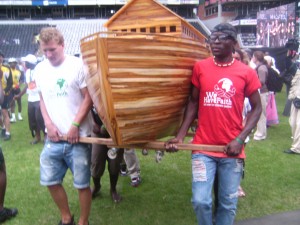Environment and poverty relate
November 30, 2011 in Ecological Justice
Human creation calls for human solution
By Maggie Mwape
The demographic pressure and poverty are said to influence Africa poor to clear the reduction of forest areas. Many lack sufficient resources to even manage the urbanization and industrialisation challenges as compared to those in the rich nations. Although poor nations are gaining quicker social and economic development the level of rich nations per capital CO2 emissions is several times higher among the rich nations than it is for developing countries. It is however sad that the efficiency of energy use is improving even in the poor countries.
Sewage, solid waste and mining pollution are major problem in urban setting as opposed to industrial pollution. Majority of people are dependent on natural resources for livelihood. Reverse in land degradation and soil erosion improves moisture conservation which also leads to sustainable development of agriculture and low poverty levels. It is emphasised that care has to be taken to particularly avoid destructive development which aggravates poverty and degrades environment. It is clear that environment cannot be sustained and protected if poverty continues by continuation of poverty and at the cost of human dignity.
A Zambian court recently fined a mining company for pollution of Kafue-Mushishima River. The court awarded the residents for safeguarding the environment. Though many believe the judgement did not factor in cost compensation for reduced human lifespan it is a great step in punishing industries that pollute environment.
It is worth to note, the poor are to a larger extent dependent on nature for survival but human activities lead to calamities, environment degradation. Deforestation on slopes of mountains increases floods and landslides. Similarly, neglect of water and soil management leads into soil erosion which threatens food security.
The poor often suffer in the midst of all disasters such as floods and drought. Lose of such productive assets affects speed-up economies. Indeed the environment has huge bearing and impact on the economy of the poor and it is for that reason that we collectively responsibility to re-create systems that we created for a Just economy.



